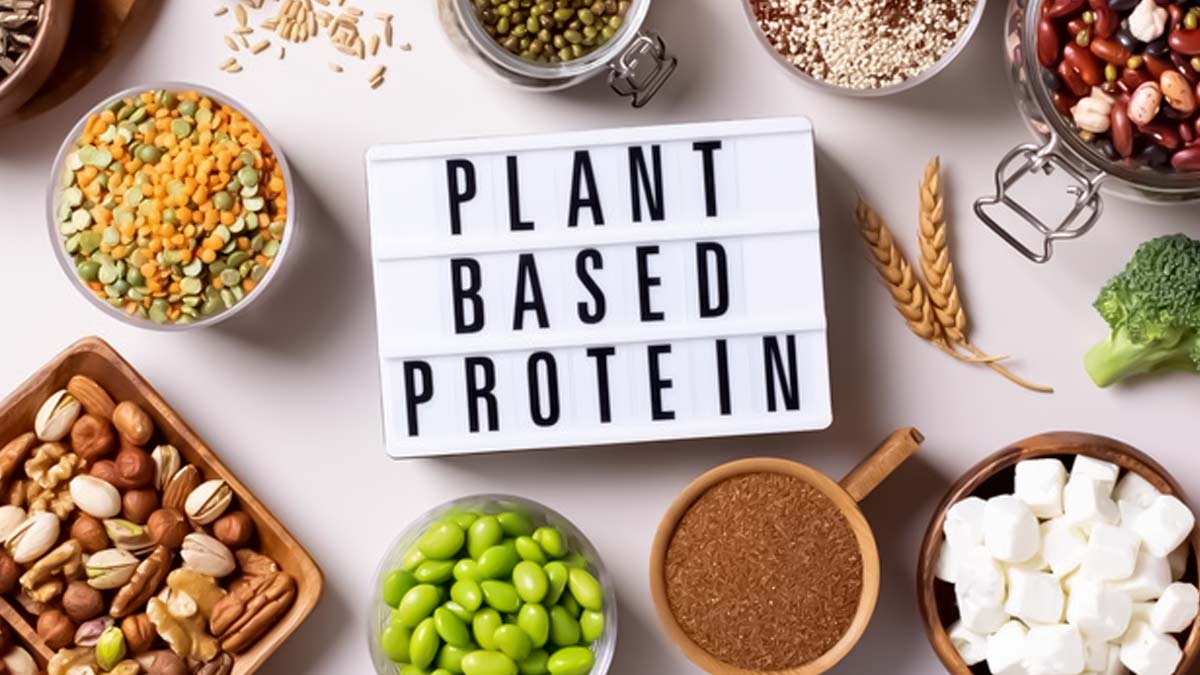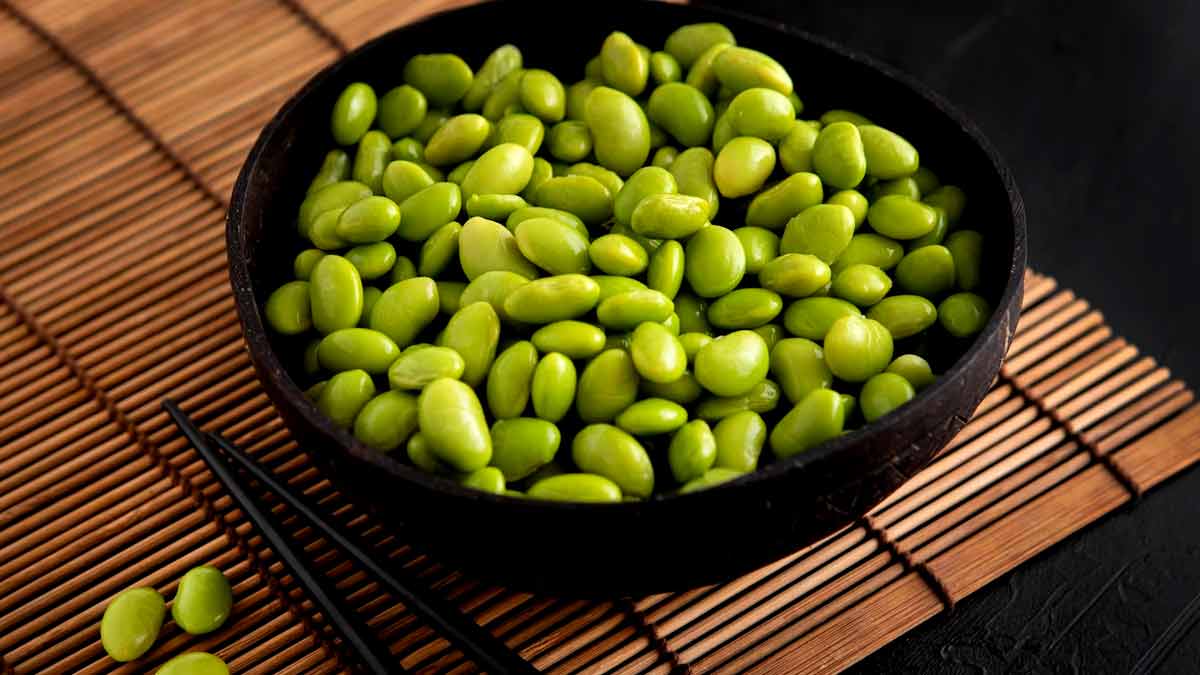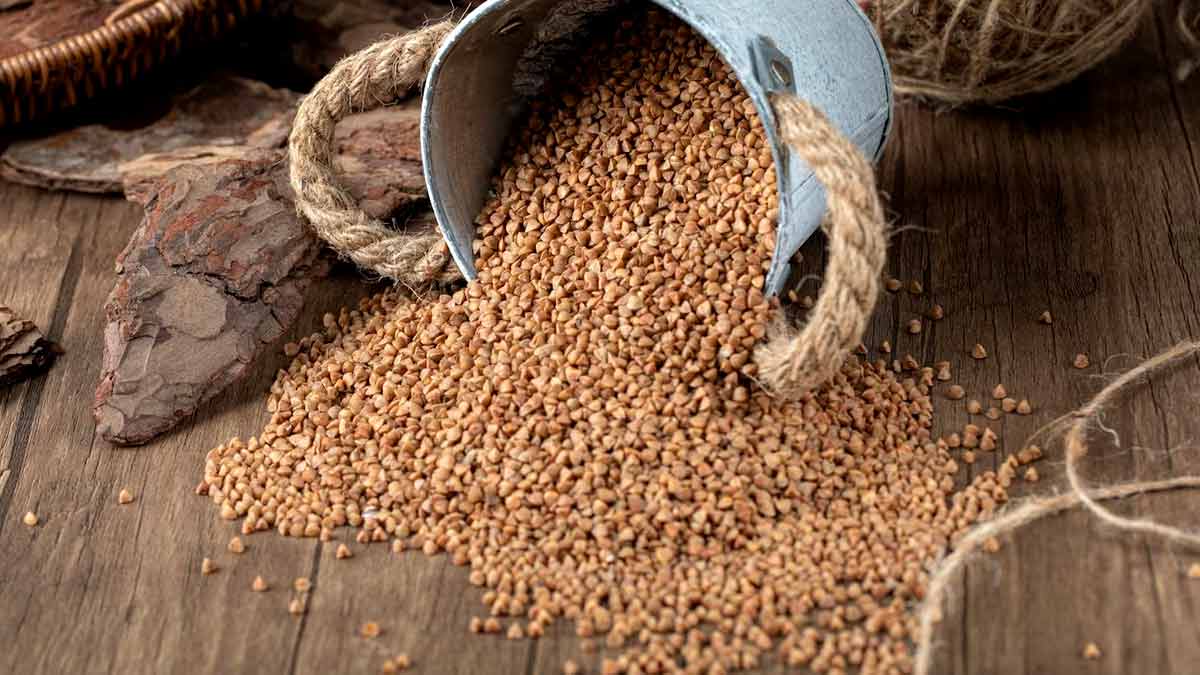Plant-Based Protein: Expert Lists Protein Options You Should Eat For Athletic Performance


When it comes to being a top-notch athlete, what you eat matters a lot. If you are looking for plant-based protein sources, you’ve come to the right place. Whether you’re an avid runner, a soccer enthusiast, or fall anywhere in between, these plant-derived protein options offer the potential to enhance your performance. They’ll make your muscles happy, help you bounce back faster, and keep you going strong in your game.
We spoke to Raveena Taurani, Culinary Nutritionist, Founder and Chef, Yogisattva Cafe, Bandra, Mumbai, who listed plant-based protein sources you can eat for athletic performance.
Benefits Of Plant-Based Protein
Plant-based protein offers a range of compelling benefits for individuals looking to optimise their diet. These protein sources are typically easier on digestion and can support gut health. They often come packaged with an array of essential nutrients such as dietary fibre, vitamins, minerals, and antioxidants, contributing to overall well-being. In a cross-sectional study of European adolescents by Healthy Lifestyle in Europe by Nutrition (HELENA), it was found that those who consumed greater amounts of plant-based protein showed lower percentages of body fat and BMI, when compared to their peers who had a higher intake of animal protein.
Also Read: Eating Protein Vs Drinking Protein: Expert Explains Which Is Better
Foods To Eat For Athletic Performance
Taurani listed foods you should eat for athletic performance:

Edamame
These are like little green powerhouses. Taurani said, “They are young soybeans and contain about 8.4 grams of protein in half a cup. They also give you fibre for a happy tummy.”
Tempeh and Tofu
Taurani informed, “Made from soybeans, these are like chameleons of the plant-based world. Tempeh is super strong with 31 grams of protein in a cup, while tofu has around 20 grams. “
Vegan Protein Powder
If you need a quick protein fix, these powders are like magic. They’re made from plants like peas, rice, or hemp, and you can get 20-30 grams of protein in a serving.

Lentils
Lentils are full of protein and fibre, giving you 18 grams of protein in a cup. They give you steady energy for your workouts and games.
Also Read: Food For Diabetics: Benefits Of Vegan Food And Best Options To Try
Sprouts
Eating sprouts can be beneficial for athletic performance due to their nutrient density and potential health benefits. They have varying amounts of protein and can help your muscles recover.
Hemp Seeds
Even though they’re small, they’re big on protein. Just three tablespoons have about 9.5 grams of protein. Sprinkle them on your food for an extra boost.

Chia Seeds
These seeds are famous for their omega-3 fatty acids and fibre. They also have about 4 grams of protein in two tablespoons.
Spirulina
Spirulina, classified as a variety of blue-green algae, has become increasingly popular as a dietary supplement due to its potential positive effects on health. It gives you about 4 grams of protein in one tablespoon and contains antioxidants, which can help reduce oxidative stress caused by physical activity.
Quinoa
Quinoa is a complete protein source, containing all essential amino acids, vital for muscle repair and growth. Taurani added that it contains 8 grams of protein in a cooked cup. It is versatile and can be used in all kinds of dishes.

Buckwheat
Don’t be fooled by the name – it’s gluten-free and has 5.68 grams of protein in a cup. It contains higher levels of protein compared to many other grains. It’s particularly rich in the amino acid lysine, which is often limited in other plant-based protein sources.
Amaranth
This ancient grain gives you a whopping 9.3 grams of protein in a cooked cup. Packed with complex carbohydrates, high-quality protein, and essential vitamins and minerals, amaranth provides sustained energy for workouts and aids in muscle recovery.
Bottomline
Taurani concluded, “It is important to remember that maintaining a balanced diet is important for a healthy body. Protein is great, but you also need good carbs and healthy fats. And don’t forget to drink water to stay hydrated – that’s super important for athletes.”
Disclaimer
The information provided in this article is shared by a registered healthcare professional and is for informational purposes only. Hence, we advise you to consult with your dietician for a diet plan tailored to your needs.
